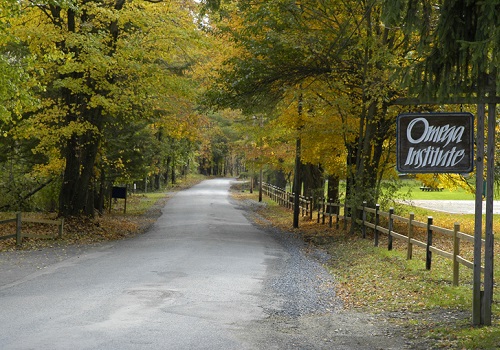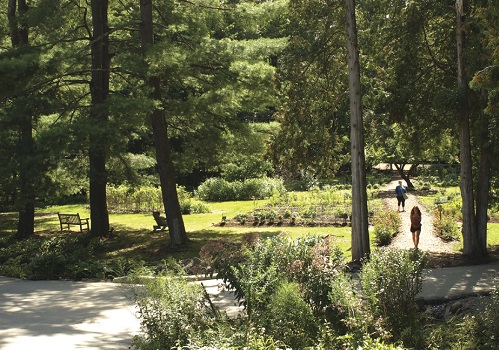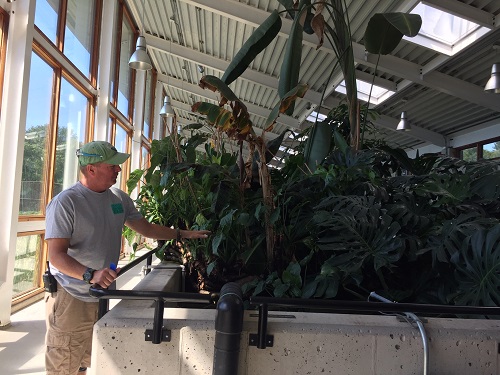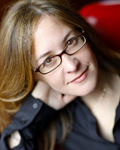For every movement of social change, there are the tools, resources and support systems that empower those who forge the path forward. Some go even a step further. They stand shoulder to shoulder with the changemakers, helping push the boulders up the hill, shouting encouragement along the way, wholly integral to the change itself.
Such is the story of the Omega Institute for Holistic Studies.
Founded in 1977 and relocated to its current spot in 1981 (the former home of a Yiddish summer camp), the breathtaking Omega campus sits on 250 lush acres in the Hudson Valley in Rhinebeck, New York, a 90-minute drive from New York City. The retreat center built its formidable reputation on enabling and hosting social innovators and visionaries – Maya Angelou, Deepak Chopra, Jane Goodall, Pete Seeger and Robert Kennedy Jr. etc. – and everyday changemakers, providing them a place to convene, learn, heal and grow.
Omega’s 250+ acre campus, located in the heart of New York’s Hudson Valley, is a premiere destination for health and wellness and lifelong learning
Thanks to that foundation, one of inspired possibility, Omega today is a dynamic point of convergence for over 23,000 people each year, while another 2 million connect through their online channels. They come for workshops, retreats or professional training courses. Its programs – 400 in all – run the social-change gamut – from creative arts to dance to education – thanks to 500 teachers and the help of approximately 90 year-round staff and 350 seasonal staff.
You can find workshops on trauma, nonprofit management, veterans and caregivers. There’s the Women’s Leadership Center, mindfulness and yoga programs. And let’s not forget the Omega Center for Sustainable Living (OCSL), an environmental education center that houses a natural water reclamation facility. More on that later.
I was here for some R&R and to participate in a 5-day mindfulness meditation workshop with Jon Kabat-Zinn (stay tuned for an article on that workshop). Much like other guests, Omega felt to me like a sight for sore eyes, body and soul. It’s not just their offerings that made it so. The place has this tremendous capacity to make visitors feel both away from it all, yet intimately tied to place and cause.
“It’s about helping people have greater understanding of their connection to nature, and to each other as part of the human family,” explains CEO Robert “Skip” Backus. Considering that goal, Omega’s focus on advancing social change – much of it behind the scenes – is as critical as the programs you find in their catalogue, he adds.
No matter what language spoken by the guests who descend upon Rhinebeck from across the globe, the vernacular of social change is the one that unites them all. And it’s been an especially vocal one over the last 10 years because of the serious changes on order, Backus offers. “Whereas in the past we were showing up more programmatically in our causes, now we are also showing up by using our voice as an organization with over 40 years of work and experience in the individual development of consciousness and social change,” he explains.
“We’ve turned up our volume in a way to meet the opportunity for that deep level of transition that needs to happen.”
That transition is aligned perfectly with Omega’s mission, one that has remained the same from inception: to provide the tools for the art of living well. At its heart is the belief that personal, environmental and global health are interconnected. Connecting with yourself is imperative to connecting with community and the world, goes the theory.
That all-embracing perspective explains why practices like meditation is baked into all other programs. It’s why moments for reflection, for breathing, for replenishing, are integral, ensuring you return to community with a renewed sense of wellbeing, better able to take on the tasks at hand.
The food they serve each day is a big part of that approach. Every meal is largely sourced from the bounty of 20 local farms in the Hudson Valley. Reducing the carbon footprint plays a part too. Omega’s commitment to sustainability includes recycling, composting and conservation. In fact, 100% of the campus’s electricity is powered through the wind and solar power that Omega purchases and generates.
And then there’s the Omega Center for Sustainable Living (OCSL). An ultimate testament of that commitment, the OCSL was originally borne of a need to replace critical infrastructure. “We knew we would have an issue with wastewater,” Chuck Maccabee tells me during a tour of the building where they treat 100% of Omega’s wastewater with zero chemicals and net zero energy.
When Omega decided to replace its old septic tank, instead of adopting the traditional approach – one replete with chemicals – they decided to create a natural water reclamation system, one that sees water as a precious resource, not waste. The OCSL is carbon neutral and meets all of its own energy needs (the building uses geothermal systems and photovoltaic power). Having recently celebrated its 10th anniversary, the OCSL was the first green building in the U.S. to achieve both LEED® Platinum and Living Building Challenge™ certification (the highest standards currently available in sustainable architecture).
A trailblazer in sustainable design, the OCSL houses constructed wetlands that work in tandem with a 4,500-square-foot greenhouse containing a water filtration system called the Eco Machine™. The system uses plants, bacteria, algae, snails and fungi to recycle Omega’s wastewater into clean water (approximately 45 million gallons to date). It restores the aquifer, and creates a “closed loop hydrological cycle”, explains Maccabee, Omega’s resident maintenance & facilities coordinator. Every season Omega offers tours of the OCSL and the environmental practices it pioneers on its premises. It also acts as a hub for programs and conferences for environmental organizations, students and educators.
It’s about moving the social change dial forward, after all, and getting those boulders up the hill. Omega is always on the lookout for opportunities to wake up the necessary conversations, shares Backus. “We’re always looking for programs we should be running, who we want to partner with, and how that represents a deeper level of relevancy to today.”
Elisa Birnbaum is the co-founder, publisher and editor-in-chief of SEE Change Magazine and the host of its podcast. She’s also the author of In the Business of Change: how social entrepreneurs are disrupting business as usual




